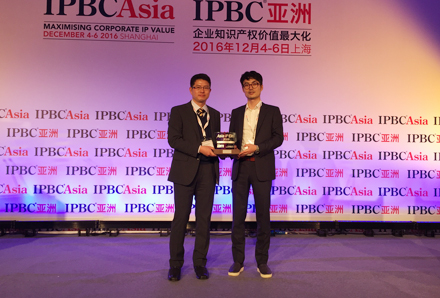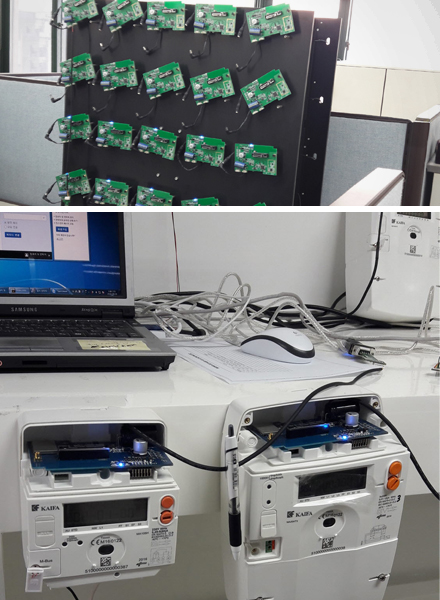
IAM Selects ETRI as Top R&D Institute of the Year
On December 5, 2016 ETRI was selected as the top “R&D Institution Team of the Year” at the IPBC Asia 2016 held in Shanghai, China. This illustrates the institute’s strengthening presence in the global market, following the achievement of becoming one of the world’s top 100 innovative institutions, selected in 2014 by the global information company Thomson Reuters for its excellence in patent management, evidenced by its top performance for three consecutive years in the assessment of patents registered in the United States since 2012. Particularly noteworthy is that ETRI was the only research institute in the Asia-Pacific region that won the award.
The ceremony was organized by IAM (Intellectual Asset Management), a topflight journal in the United Kingdom specializing in intellectual property. Founded in 2003, IAM has dealt with intellectual property from the perspective of treating it as a business asset and tool, not merely as simple legal rights. The organization conducts multifaceted investigation of businesses, research institutes, and other organizations in the Asia-Pacific region, and the journal is recognized as one of the top publications in the field of intellectual property business in Korea as well.
This year, IAM selected and awarded top-performing institutions in a total of eight areas: automobiles, electronics, healthcare, Internet, semiconductors, telecommunication, research institutions, and startups.
Winning the award, ETRI proved that its systematic patent management resulted in more outstanding performance and value creation than other research institutions. It also shows the recognition of efforts for patent management by research institutions funded by the Korean government, with a focus on the creation of competitive patents, strategic patent management, and global patent marketing.

ETRI’s Nano Qplus enters into the Global Market
Nano Qplus is a micro-sized operating system which has been developed by ETRI researchers since 2006. Nuri Telecom, a Korean local company, facilitated the system’s entry into the USD 2 million Indian market in April 2015, and the company is currently exploring avenues to introduce the technology to the Norwegian market.
ETRI loaded Nano Qplus and the latest TSCH (time-slotted channel hopping) technology on the commercialized remote metering device of Nuri Telecom. At the end of 2015, the institute’s researchers began supporting a large-scale field test of Norway’s SORIA Project. At this moment, the inspectors in Norway have completed a small-scale functional test, and ETRI is currently building an independent testing environment and undergoing a range of verification processes to establish a large-scale site.
Detached houses have been the most common type of housing in Norway and other Scandinavian countries, and therefore electricity meter readers should visit each individual house to read the amount of electricity used. The countries have also faced significant challenges in relation to energy management, since it is impractical to collect accurate, real-time power consumption data from the electric meter installed for each household.
Nano Qplus can be embedded inside the internal communication module of electric meters installed in each house in Norway. This will enable the power consumption data to be transmitted automatically and remotely, thereby realizing efficient electrical metering. For remote electrical metering, each household’s smart meter embedded with Nano Qplus configures a network for wireless telecommunication and is connected to the server through the gateway module including Nano Qplus. The smart meter measures electrical consumption every 15 minutes and transmits the data to the central server through the configured network.
As Nuri Telecom developed a commercial device for advanced metering infrastructure using Nano Qplus and latest TSCH technology, the product is expected to enable real-time metering of water and gas in addition to electricity and invigorate the AMI market.
ETRI aims to further advance the technology to load its operating system on the industrial IoT services, which require high reliability and lower power consumption. Through this effort, the institute plans to strengthen its competitive edge by expanding its focus to factory monitoring and automatic process control technology.
